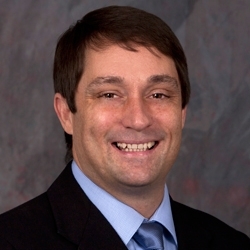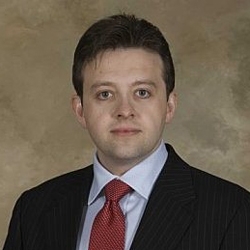03.24.14
Treating cervical cancer cells with Japanese mushroom extract Active Hexose Correlated Compound (AHCC)led to the eradication of human papillomavirus (HPV), as well as a decrease in the rate of tumor growth in vitro and in vivo, in research presented at the Society of Gynecological Oncology 45th Annual Meeting on Women’s Cancer in Tampa, FL.
The study was led by Dr. Judith A. Smith, Pharm.D., at the University of Texas Health Science Center (UTHealth) Medical School at Houston.
In the study cervical cancer cells were treated with AHCC and incubated for 72 hours with sampling every 24 hours. The study was then repeated in two orthotopic mouse models, one HPV positive and other HPV negative control. The HPV expression was eradicated with once daily AHCC dosing for 90 days with durable responseafter 30-day observation off treatment. Dr. Smith then repeated the study to confirm findings and added sampling for correlative testing of immune markers to determine the mechanism by which AHCC eradicates the HPV virus.
These data suggest AHCC can eliminate HPV infections and may have a role in the prevention of HPV-related cancers. A confirmatory pilot study in HPV+ women is underway at UTHealth Women’s Center.
“The results of this study were very encouraging,” said Dr. Smith, associate professor at the UTHealth Medical School. “This study, initiated in 2008, shows that by itself AHCC has the potential to treat the HPV infection,” she said. Dr. Smith’s previous study evaluated AHCC integration with common chemotherapy agents used for the treatment of ovarian cancer, to screen for potential drug interactions and improvement in activity.
AHCC works as an immunotherapy, which is a treatment that uses a body’s own immune system to help fight disease. Human andin vivo studies have shown that AHCC increases the number and/or activity of Natural Killer (NK) cells, dendritic cells, and cytokines, which enable the body to effectively respond to infections and block the proliferation of tumors. “AHCC is a common, well tolerated nutritional supplement that has been used for decades in Japan, so I am very excited to be pursuing a nutritional approach to trying to find a treatment for HPV infections,” said Dr. Smith.
HPV is the most common sexually transmitted virus in the U.S. Up to 70% of sexually active adults will acquire HPV at some point in their lives. Human papillomavirus DNA has been detected in 99.7% of cervical cancer biopsies, yielding the largest causative relationship of any cancer.
For more information: www.ahccresearch.org
The study was led by Dr. Judith A. Smith, Pharm.D., at the University of Texas Health Science Center (UTHealth) Medical School at Houston.
In the study cervical cancer cells were treated with AHCC and incubated for 72 hours with sampling every 24 hours. The study was then repeated in two orthotopic mouse models, one HPV positive and other HPV negative control. The HPV expression was eradicated with once daily AHCC dosing for 90 days with durable responseafter 30-day observation off treatment. Dr. Smith then repeated the study to confirm findings and added sampling for correlative testing of immune markers to determine the mechanism by which AHCC eradicates the HPV virus.
These data suggest AHCC can eliminate HPV infections and may have a role in the prevention of HPV-related cancers. A confirmatory pilot study in HPV+ women is underway at UTHealth Women’s Center.
“The results of this study were very encouraging,” said Dr. Smith, associate professor at the UTHealth Medical School. “This study, initiated in 2008, shows that by itself AHCC has the potential to treat the HPV infection,” she said. Dr. Smith’s previous study evaluated AHCC integration with common chemotherapy agents used for the treatment of ovarian cancer, to screen for potential drug interactions and improvement in activity.
AHCC works as an immunotherapy, which is a treatment that uses a body’s own immune system to help fight disease. Human andin vivo studies have shown that AHCC increases the number and/or activity of Natural Killer (NK) cells, dendritic cells, and cytokines, which enable the body to effectively respond to infections and block the proliferation of tumors. “AHCC is a common, well tolerated nutritional supplement that has been used for decades in Japan, so I am very excited to be pursuing a nutritional approach to trying to find a treatment for HPV infections,” said Dr. Smith.
HPV is the most common sexually transmitted virus in the U.S. Up to 70% of sexually active adults will acquire HPV at some point in their lives. Human papillomavirus DNA has been detected in 99.7% of cervical cancer biopsies, yielding the largest causative relationship of any cancer.
For more information: www.ahccresearch.org


















